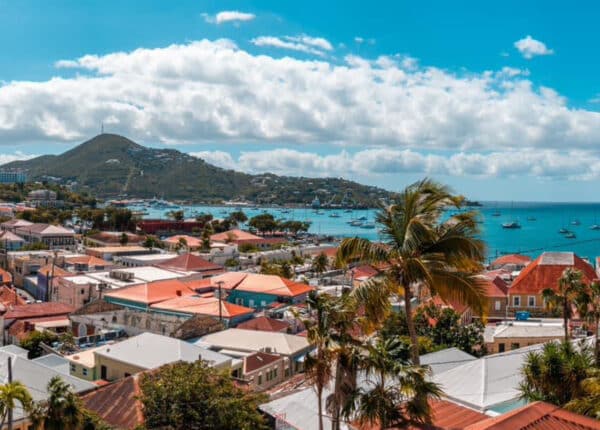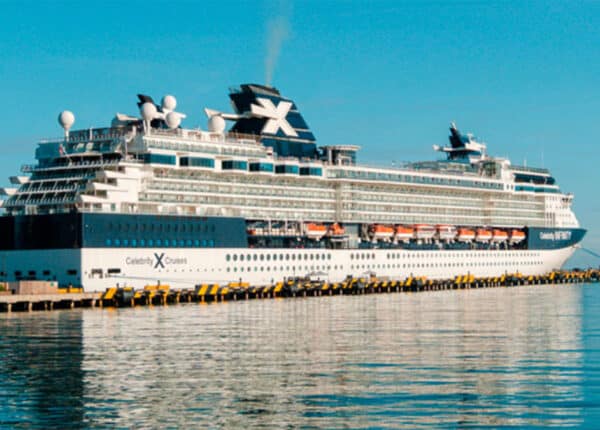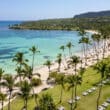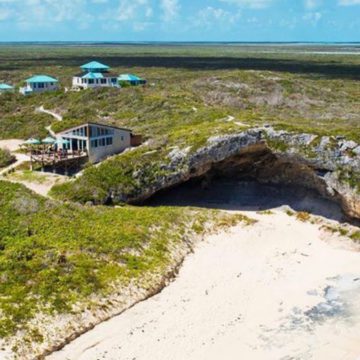Interview with Jamaican Parliamentary Candidate Damion Crawford
By Alexander Britell
Damion Crawford, People’s National Party candidate for the East Rural St Andrew seat in Jamaica’s Parliament, attended Kingston College, and then went to the University of the West Indies, where he received a master’s degree in tourism management, a field in which he also lectured. In November 2008, he was elected the president of the People’s National Party Youth Organization. It was only recently that he decided to take the next step and run – in his words, because politics is the only way to change things at the macro level. Crawford is running for the East Rural St Andrew seat, against an as-yet-unannounced candidate from the Jamaica Labour Party. In the first of a series looking at Jamaica’s election season and giving Jamaican candidates of all sides a chance to share their views, CJ Politics talked to Crawford about his campaign and the issues facing the country.
How has the campaign gone so far?
Well, the campaign just started. I was named the candidate [last week] and we have been in house more, preparing the strategies, than being on the road. I’ve been getting good reviews and good feedback in the country, that there’s an excitement about my candidacy, and the fact of the matter is that I’m enthused by that.
How would you describe the tenor of politics in Jamaica — the way candidates interact with one another?
It depends on the candidates. I don’t think that there’s a general brush that paints all of them. I welcome whoever my opponent is – that hasn’t been named yet, because [an opponent] is central to the democratic process. [The race will be] one of mutual respect, I hope, and we will seek to prove to the electors that our traits are best served for their advancement.
What is the biggest issue facing Jamaica today?
I think there are two major issues facing Jamaica today. The overarching one is how power is distributed – campaign financing is so important, because whoever gives political power, gets the policy, so policies are necessary to move the masses forward. I think at the root, we need to review how we fund elections, so we can actually start to solve some of the greater problems, because if we have a dollar to spend, and it is between those who fund elections and education, or if it’s between an election and health, health or education won’t get it. So until we have democratized the funding of elections, and the process of attaining power, then we will democratize the process of distributing power through policy. On the forefront is education, of course, as it is in any third world country, and the distribution of wealth is also of great importance, so we can have better living standards.
The Jamaican economy reportedly grew in the last two quarters– what do you think about the state of the economy and what can be done to improve it?
Well, what we have had in the last four years is actually one month of growth that has happened. I think that growth is an overstated interest in our area, because there is a greater message in my mind, which is development. Growth means the country becomes more productive. But there can be jobless growth, and there can be growth where persons are worse off because it’s not sufficiently distributed. But growth does not automatically indicate development. Because development is focused on education, which leads to innovation, which leads to job creation and greater productivity. [Improved] health means less time lost because of illness, and that also contributes to industry. I think if we focused on the Human Development Index – education, health, income distribution, we would achieve growth. But if we have higher productivity, it isn’t automatic that we achieve growth – we need to focus on the development side, which measures human well-being.
You concentrated in tourism, and have taught in the field. What can Jamaica do to improve its tourism sector?
Well, for one, we have to promote our diversity. I think that we have been stuck in promoting sun, sand and sea, and there’s not a sufficient differentiation between our sun and sand and other tropical destinations. I think that we have a much more diversified product that most Caribbean islands – the Blue Mountains, Kingston as a centre, for example. Businesses can come here as well, and I think the promotion of that diversity and that differentiation will set us apart from many destinations. I think also the culture, which is very much known and appreciated across the world, should be something that we also promote as a reason to come, as the “pull factor,” for persons to come to Jamaica.
After taking office, Prime Minister Holness said he wanted to dismantle so-called “garrisons” in Jamaica. What do you think about that notion and what should or should not be done in that regard?
Well, first of all, a garrison is more of a catch word, because we have not defined what a garrison is. What we need to be looking at is a solution to the criminal reality. Once that criminal reality is gone, we can have free and fair elections. So I am not one who labels communities as garrison communities, because what we’re looking at is the difference between those [communities] with consistent voting patterns and those that have criminal elements. So what I’m looking at is crime in its totality and the reduction of crime, so we can have a better economy, a better political system and a better social system. So I don’t buy into the concept that garrisons are the thing – I think that there are criminal elements exist that are supportive of both parties, and once we have attacked that criminal element, their influence would be reduced.
Has crime improved in Jamaica?
It has improved, but that improvement can either be a consistent improvement, which I think happened in Colombia, or a short-term improvement that happened in Honduras. What we have seen is that the justice system has not been resolved – as a justice system that ensures that punishment comes swiftly, is sufficiently severe and sufficiently sure, that looks at the police force, that arrests people in a sure way, that once you commit a crime you’re likely to be caught. The risk of punishment for a crime is too low, and, by extension, the risk of being caught is too low, as are the risks of being sufficiently punished.
How would you describe Jamaica’s progress on Caribbean integration, and how would you change it?
In the same way that in the United States, the Democratic Party and the Republic Party have certain outlooks on immigration, the same way exists in integration outlooks. I think my party has been a great supporter [of integration], but unfortunately, most of the parties that are supporters of integration are not in power across the Caribbean now, so by extension, integration is at threat. I think the first step in integration should be the Caribbean Court of Justice, so that we can now start to expedite the distribution of justice in the Caribbean, and also have a great hold on it. If you look at where the world is heading, you would realize that is where we have to go as small nations within the Caribbean, because if we don’t have a central market, with a central dollar system, we will be lost in the hurricane that is coming in this new globally connected world.







